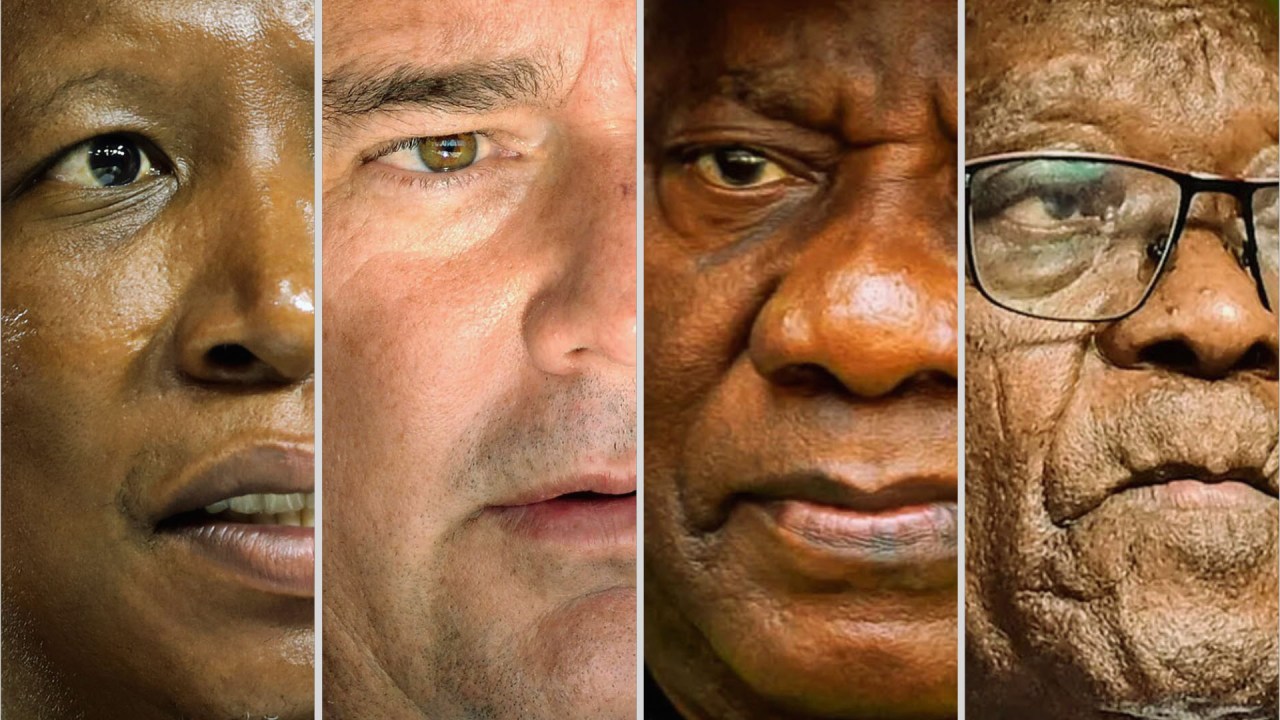From Berlin to Vilnius, governments are coming to grips with the growing threat from Russian-sponsored acts of spying, sabotage and violent intimidation on Nato territory ahead of European Union elections next month, which alongside a determined campaign of disinformation, are designed to test the continent’s support for Ukraine.
President Vladimir Putin warned the West against threatening Russia as he pursues his invasion of Ukraine and revived his nuclear sabre-rattling at the annual military parade in Moscow marking the victory in World War 2.
Pentagon teams up with SpaceX to block Russia from using Starlink
Pentagon officials working with Elon Musk’s SpaceX have blunted the Russian military’s unauthorised use of Starlink internet terminals on the battlefield in its war with Ukraine, according to the Defense Department’s space policy chief.
The US has been “heavily involved in working with the government of Ukraine and SpaceX to counter Russian illicit use of Starlink terminals”, John Plumb, the outgoing assistant secretary for space policy, said in an interview.
“At this time we have successfully countered Russian use, but I am certain Russia will continue to try and find ways to exploit Starlink and other commercial communications systems,” he told Bloomberg News. Although “it will continue to be a problem, I think we’ve wrapped our heads around it and found good solutions with both Starlink and Ukraine.”
Plumb declined to elaborate on what tactics, techniques or procedures were being used to stem Russia’s use of the highly portable communications terminals that connect to SpaceX’s fleet of low-orbiting satellites. Ukrainian government officials had no immediate comment.
Starlink terminals continue to be advertised for sale in Russia on platforms such as the e-commerce site Ozon. Their sellers say they function through subscriptions taken out in the name of residents of European countries where the technology is licensed, and they say that connections work — not within Russia’s heartlands but near border regions such as Ukraine’s occupied territories.
This week, however, users complained of unprecedented connectivity issues. On the messaging app Telegram one of the sellers recommended transferring to a more expensive global service plan. Bloomberg hasn’t been able to independently verify whether those workarounds restore connectivity for illicit Starlink use in Russia.
In a letter released on Monday, Democratic Senator Elizabeth Warren urged the Pentagon to rein in the use of Starlink in Russia and other unauthorised regions, saying it posed a “serious national security threat” to the US and its allies.
Russian sabotage, spying and intimidation is spreading in Europe
In Germany, two suspects hired by Russian intelligence to target military bases had come to the country as teenagers. In Estonia, young men with criminal records were recruited over Telegram to vandalise a minister’s car and national monuments for a bit of cash.
Elsewhere in Europe, government workers are advised to take precautions against a greater risk of violence by Russian-backed thugs. The hand of the GRU military intelligence service is probably behind a series of ever-more overt, frequent and coordinated incidents across the continent, according to officials familiar with the matter, speaking on condition of anonymity to discuss open investigations.
From Berlin to Vilnius, governments are coming to grips with the growing threat from Russian-sponsored acts of sabotage and violent intimidation on Nato territory ahead of European Union elections next month, which alongside a determined campaign of disinformation, are designed to test the continent’s support for Ukraine.
The sheer brazenness now of Kremlin-sanctioned activities — years after the Salisbury poisonings that the UK believe were probably ordered by Russian President Vladimir Putin, and the Tiergarten killing in Berlin — has led one senior official to the conclusion that Moscow no longer cares if it’s caught carrying out hostile acts and has jettisoned more subtle forms of clandestine espionage with open brutality on Western targets.
In London on Friday, a British man will appear in court, accused of carrying out an arson attack against a Ukrainian-linked warehouse in East London. The UK expelled a top Russian diplomat as part of a crackdown on Russian spies in response.
In Poland, prosecutors arrested a man they accused of collecting information about an airport that serves as the main stopover point for officials travelling to and from Ukraine on suspicion of assisting in a Russian plot to assassinate President Volodymyr Zelensky.
One European official said several of the incidents in Europe were part of a GRU-coordinated operation with similar activities being carried out in various capitals. The response is focused on activity that has happened as opposed to the threat of activity that could happen — and demonstrating to Russia that the West knows what it’s doing and there are consequences, the official said.
Kremlin spokesperson Dmitry Peskov told journalists on Monday that allegations that Russia planned sabotage acts in Europe were “just another series of unfounded accusations against our country”, according to the Interfax news service.
Putin renews nuclear threats against West at military parade
President Vladimir Putin warned the West against threatening Russia as he pursues his invasion of Ukraine and revived his nuclear sabre-rattling at the annual military parade in Moscow marking the victory in World War 2.
“We will not let anyone threaten us. Our strategic forces are always on combat alert,” Putin (71), who was sworn in this week for his fifth term as president after a tightly orchestrated reelection in March, said on Thursday at the parade.
This year’s display on Red Square featured 9,000 troops and weaponry including advanced air defence systems and intercontinental nuclear missile launchers, but only one tank, the World War 2-era T-34. Onlookers were bundled in coats amid unseasonably cold temperatures, and patches of snow could be seen in places on the ground in the broadcast.
Russia has ratcheted up threats against the US and its allies as Ukraine has been struggling on the battlefield after months of delay in new military aid that left it critically short of ammunition.
Putin earlier this week ordered his military to conduct combat drills involving tactical nuclear weapons in response to what Russia called “provocative” Western statements. France has raised the idea of sending ground troops to Ukraine and the UK said it would allow Kyiv’s forces to strike Russia with British weapons. The US approval of $61-billion in new aid last month has helped to bolster morale in Kyiv, as supplies of munitions and arms are starting to flow again.
Ukraine legislators vote to dismiss two Cabinet ministers
Ukraine’s parliament voted to dismiss the infrastructure and agriculture ministers, as Zelensky overhauls his government to manage an economy reeling under a third year of war.
The removal of Oleksandr Kubrakov, a deputy premier in charge of wartime reconstruction, in a motion citing shortcomings in regional policy was backed by 272 legislators, parliament member Yaroslav Zheleznyak said on Telegram. Separately, 273 legislators voted to dismiss Mykola Solskyi, the agriculture minister who has been targeted in a graft probe looking into a state-owned land grab in the eastern Sumy region. The minister was released from detention last month after depositing $1.9-million bail, while keeping his post.
Kubrakov (41) is part of the cohort of young technocrats who joined the government after Zelensky came to power on promises to renew the country five years ago. With Russia starting its full-scale invasion in 2022, Kubrakov got promoted to deputy prime minister, with his responsibilities expanded to include military logistics and reconstruction of destroyed housing and municipal infrastructure.
The motion to remove Kubrakov was initiated by 40 deputies, all but three of them being members of Zelensky’s Servant of the People party which has a majority in the 401-strong legislature. With the war in its third year, Russian missile and drone strikes continued to inflict damage on the country’s power system, prompting public criticism of insufficient protection of vital infrastructure. DM
![]()



 1 week ago
111
1 week ago
111

















